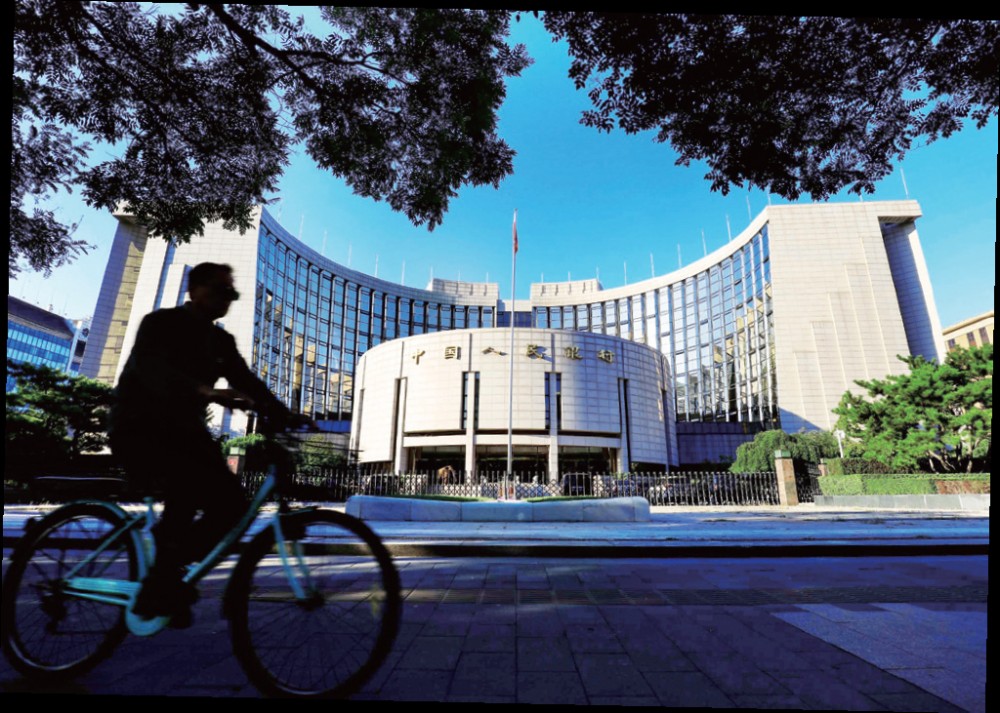Hong Kong is both an early promoter and core participant in the process of RMB internationalization. Having built up first-mover and scale advantages for a long time, Hong Kong is set to further consolidate its status as an offshore RMB hub in 2022, adding more unique competitive advantages to the international financial centre.
 According to E Zhihuan, Chief Economist of the Bank of China ( Hong Kong) , as the world’s leading international financial centre, Hong Kong has long been widely recognised by global investors for the depth, breadth, and internationalisation of its financial market, as well as the degree to which its legal rules are in line with international standards. These outstanding advantages have made Hong Kong an optimal gateway for foreign investors to access the financial market in the Mainland. In summary, she believes that there are three factors supporting the development of Hong Kong into an offshore RMB hub.
According to E Zhihuan, Chief Economist of the Bank of China ( Hong Kong) , as the world’s leading international financial centre, Hong Kong has long been widely recognised by global investors for the depth, breadth, and internationalisation of its financial market, as well as the degree to which its legal rules are in line with international standards. These outstanding advantages have made Hong Kong an optimal gateway for foreign investors to access the financial market in the Mainland. In summary, she believes that there are three factors supporting the development of Hong Kong into an offshore RMB hub.
Stable RMB exchange rate is beneficial to offshore market
The first factor is exchange rate. In 2021, the RMB exchange rate fluctuated within a reasonable range and showed an overall steady and rising trend. In recent years, the RMB exchange rate has become more market-driven and remained basically stable against the items in the currency basket. While maintaining the flexibility of the exchange rate, the RMB has improved the resilience of fluctuations and enhanced the confidence of the global market in RMB assets.
Against this backdrop, the offshore RMB market in Hong Kong has developed steadily, with the size of the RMB capital pool remaining the world’s leading and the RMB product system being increasingly diversified. According to data released by the Hong Kong Monetary Authority, the balance of RMB deposits in Hong Kong at the end of November 2021 reached 868.7 billion yuan, hitting a recorded high since 2015, and in the first 11 months of 2021, the cross-border trade settlement for RMB in Hong Kong amounted to 6,375 billion yuan, an increase of 10.1% over the same period last year. The size of the capital pool is an important indicator of market depth, and it is also a key to Hong Kong becoming the world’s largest offshore RMB hub.
Clearing system has scale advantage
 The second factor is the huge RMB clearing system. E said that the payment and clearing system in Hong Kong brings benefits from its large scale as about 75% of global offshore RMB payments are settled through Hong Kong. According to data from Hong Kong Interbank Clearing Limited (HKICL), the total volume of RMB Real Time Gross Settlement (RTGS) in 2021 was 357.7 trillion yuan, accounting for a year-on-year increase of 26.6%.
The second factor is the huge RMB clearing system. E said that the payment and clearing system in Hong Kong brings benefits from its large scale as about 75% of global offshore RMB payments are settled through Hong Kong. According to data from Hong Kong Interbank Clearing Limited (HKICL), the total volume of RMB Real Time Gross Settlement (RTGS) in 2021 was 357.7 trillion yuan, accounting for a year-on-year increase of 26.6%.
The increase in the size of the RMB capital pool in Hong Kong would support a large number of activities of trade and financial transactions, and drive the formation of a diversified RMB product system, including stocks, bonds, funds, insurance and derivative products, in the offshore market in Hong Kong. According to data from the Bank for International Settlements (BIS), the average daily volume of RMB foreign exchange trading in Hong Kong was USD107.6 billion in 2019, an increase of 39.6% from three years ago. This figure accounted for 30% of RMB foreign exchange trading globally, surpassing that of London and Singapore.
Interconnection of financial markets adds new impetus
 The third factor is the interconnection of financial markets with the Mainland. The Mainland has accelerated the opening up of the onshore financial market in recent years. In 2021, mutual market access schemes such as Stock Connect and Bond Connect continued to develop further, with trading volumes repeatedly hitting new highs. Hong Kong and international investors held a total of over 2 trillion yuan in A-shares listed on the Shanghai and Shenzhen exchanges in 2021, up sharply from the 86.5 billion yuan at the end of 2014. The Southbound Bond Connect was officially launched on 24 September 2021, making Hong Kong an important channel for foreign investors to access the Mainland market and for Mainland investors to invest overseas.
The third factor is the interconnection of financial markets with the Mainland. The Mainland has accelerated the opening up of the onshore financial market in recent years. In 2021, mutual market access schemes such as Stock Connect and Bond Connect continued to develop further, with trading volumes repeatedly hitting new highs. Hong Kong and international investors held a total of over 2 trillion yuan in A-shares listed on the Shanghai and Shenzhen exchanges in 2021, up sharply from the 86.5 billion yuan at the end of 2014. The Southbound Bond Connect was officially launched on 24 September 2021, making Hong Kong an important channel for foreign investors to access the Mainland market and for Mainland investors to invest overseas.
On 19 October 2021, the Guangdong- Hong Kong-Macao Greater Bay Area (GBA) became the first experimental site for the Cross-boundary Wealth Management Connect Scheme (Cross-boundary WMC) which, under the framework of closed-loop management of funds, provides support for residents in the GBA cities in the Mainland investing in wealth management products distributed by the banks in Hong Kong and Macau for cross-boundary asset allocation. The Cross-boundary WMC has further boosted cross-boundary two-way capital flows, improved Hong Kong’s status as an international asset management centre, and driven Hong Kong to develop its wealth management services with RMB characteristics.
Looking ahead, E believes that Hong Kong should further strengthen the development of the offshore RMB hub in 2022 through several measures: Firstly, as the Mainland opens up its financial market, Hong Kong can keep pace with the progress of RMB internationalization and capital account opening, and serve as a buffer and an intermediary for the further opening of the Mainland’s market. Secondly, Hong Kong should further enhance the depth and breadth of the offshore RMB market, extending RMB business to Southeast Asia and strengthening interconnection between the offshore market and the onshore market. At the same time, it should also continue to expand the scale of existing RMB-denominated products and further promote RMB product innovation.




